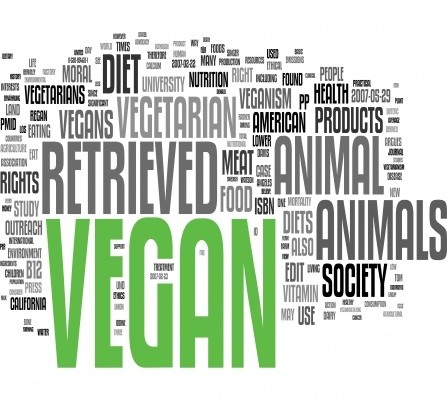A year-long battle over the legal rights to use the word “mayo” reached an end in December. The world’s largest condiment company and producer of Hellmann’s Mayonnaise, Unilever, threatened to sue the start-up sustainable food company Hampton Creek, which produces Just Mayo. The U.S. government parsed words and determined the case in favor of Hampton Creek’s right to call its product “mayo” (Kaplan, 2015). This win exemplifies the kinds of adjustments in the collective understanding and use of language we may see as we undergo a wide cultural shift toward a vegan lifestyle. Words are powerful. With them, one person is able to connect with another in a way that attempts to bridge the gap in understanding inherent in the experience of existence. Nonviolent Communication is a method of speaking and listening that respects the power words have to generate argument or understanding (Center for Nonviolent Communication, 2016). As Dr. Masaru Emoto’s research proves, words actually change the molecular structure of water (2010). Implications of these studies are far-reaching – as both Earth and the human animal are comprised of about 70% water (NASA, 2007), words can be used to harm or heal the planet and people.
The word “vegan” was coined by Donald Watson in 1944, and specified:
“a philosophy and way of living which seeks to exclude – as far as is possible and practicable – all forms of exploitation of, and cruelty to, animals for food, clothing or any other purpose; and by extension, promotes the development and use of animal-free alternatives for the benefit of humans, animals and the environment. In dietary terms it denotes the practice of dispensing with all products derived wholly or partly from animals.”
Thus, “vegan” took on powerful meaning, distinguishing itself from “vegetarian” diets. “Vegan” meant not just a diet but a holistic peaceful lifestyle.
As perhaps expected, the recent increasing popularity of veganism (Sareen, 2013) has led to a watering-down of the meaning of the word. More people adding their own opinions, understandings, and reasons for making the switch renders a less cohesive definition. For the sake of advancing the ethics, values, and morality – and the movement for equal rights for all beings, it is important that the word “vegan” be uniformly understood to mean a wholly peaceful lifestyle, not just a plant-based diet.
However, the rise in numbers of vegans does create a renewed opportunity to reclaim some of the words that have been exclusive to the meat and dairy industries. The “mayo” case sets a precedent for the use of other words that have historically been associated solely with animal body parts and secretions. For example, the word “meat” itself may include meats not only of animals, but also nut meats and soy-based meat products. “Milk” may refer not just to the milk from mother animals, but also to milks made from nuts and legumes. By claiming the use of these and many other words, their power is re-allocated and evenly distributed to include vegan foods and products. This may seem like a subtle shift, but in fact is an important step in the move toward a majority-vegan society.
The power of words may be used to convey meaning or to emphasize a concept. The power of words may be used to change the physical makeup of human beings or the Earth. When used with clarity and purpose, the power of words may be used to create world peace.
Allyse Sonnega is a dedicated yogini, educator, mother, vegan, and overall uplifting human being that provides great service to the world through her peaceful thoughts, words, and actions.
References:
Center for Nonviolent Communication: An International Organization. (2016). Retrieved from https://www.cnvc.org/
Emoto, M. (2010). Masaru Emoto. Retrieved from http://www.masaru-emoto.net/english/water-crystal.html
Kaplan, S. (2015, December 18). “How little ‘Just Mayo’ took on Big Egg and Won.”
The Washington Post. Retrieved from https://www.washingtonpost.com/news/morning-mix/wp/2015/12/18/how-little-just-mayo-took-on-big-egg-and-won/
NASA. (2007, April 16). “Follow the Water: Finding a Perfect Match for Life.” Retrieved from http://www.nasa.gov/vision/earth/everydaylife/jamestown-water-fs.html
Sareen, A. (2013, April 3). “Interest in Vegan Diets on the Rise: Google Trends Notes Public’s Increased Curiosity in Veganism.” The Huffington Post.

